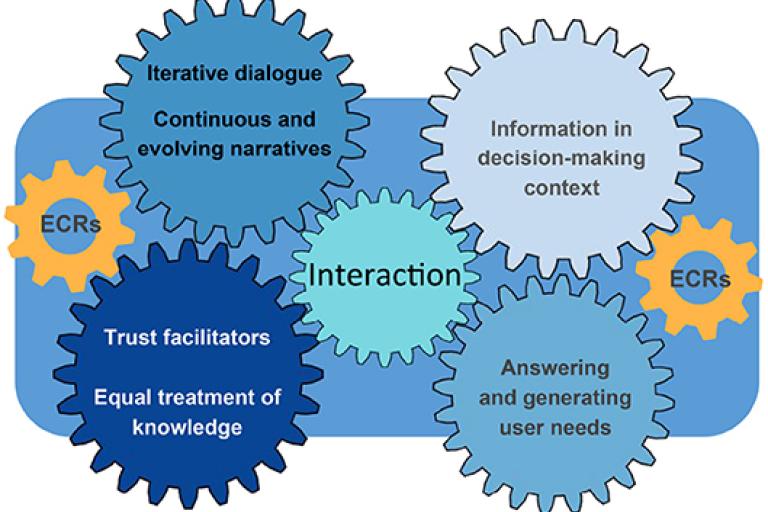Regional Information for Extreme Events: An Early Career Perspective
The paper emerged from discussions during the three-day Young Earth System Scientists - Young Hydrologic Society (YESS-YHS) workshop, which was conjointly held with the Global Energy and Water Exchanges (GEWEX) Open Science Conference in Canmore, Canada. The roughly 40 Early Career Researchers (ECRs) from 26 countries discussed three possible ways forward in the field: a stronger interaction between users and scientists, a collaborative modelling approach between the different modelling communities, and possible inclusion of unconventional data sources in scientific studies. By making strides in the three domains, the scientific community can gain improved quantification and prediction of extreme events, and deliver more useful and relevant regional information to users.

The paper emerged from discussions during the three-day Young Earth System Scientists - Young Hydrologic Society (YESS-YHS) workshop, which was conjointly held with the Global Energy and Water Exchanges (GEWEX) Open Science Conference in Canmore, Canada. The roughly 40 Early Career Researchers (ECRs) from 26 countries discussed three possible ways forward in the field: a stronger interaction between users and scientists, a collaborative modelling approach between the different modelling communities, and possible inclusion of unconventional data sources in scientific studies. By making strides in the three domains, the scientific community can gain improved quantification and prediction of extreme events, and deliver more useful and relevant regional information to users.
The paper highlights the important role of ECRs in embracing the outlined pathways and addressing long-standing challenges in the field, simultaneously providing great opportunities for ECRs to take a leading role in moving Climate, Weather and Hydrological (CWH) sciences forward. YESS and YHS encourage the global community to support and strengthen their involvement with ECR communities to advance the field of interdisciplinary Earth system science in the upcoming years to decades and to foster advances in the field of CWH sciences.
YESS-YHS wish, in particular, to thank the WMO WCRP, WWRP and GAW programmes as well as the Climate and Water department for supporting the organization of, as well as the participation of the majority of the co-authors of this paper to join in the workshop.

